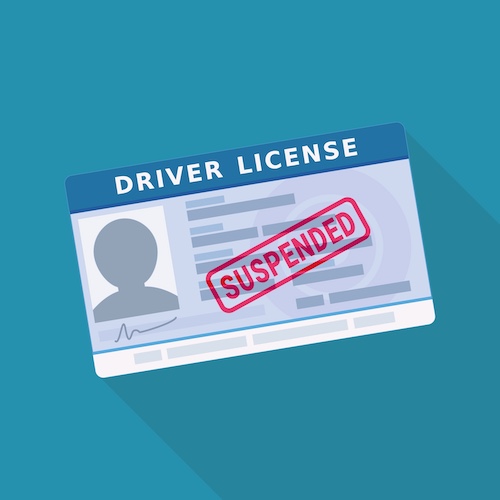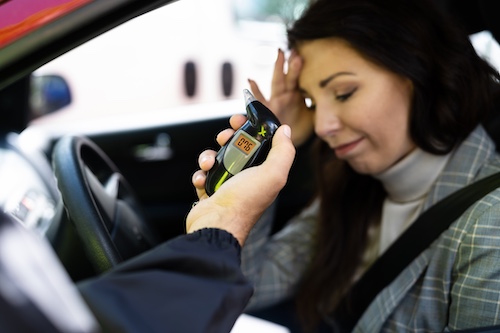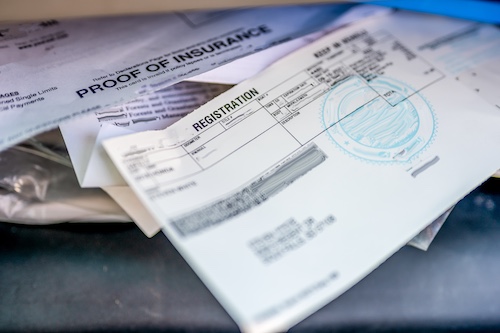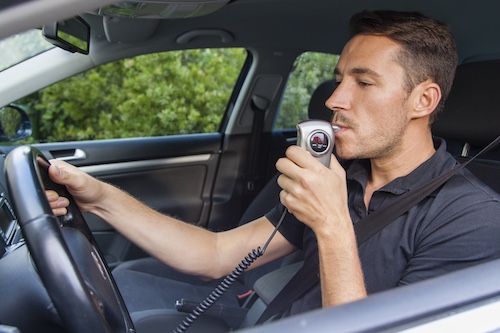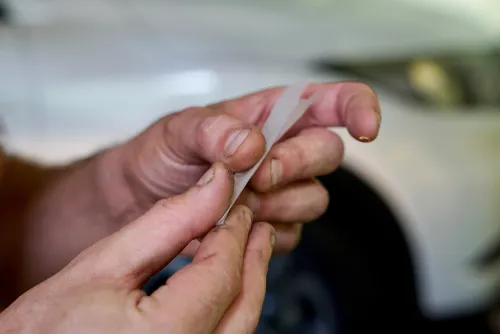Hardship License Application Timeline In North Carolina
At Asheville DUI Guy, we focus on defending drivers facing DUI charges across Western North Carolina. Our team understands the impact a suspended license can have on work, school, and family responsibilities. We use our knowledge of North Carolina DUI laws to guide clients through the hardship license application process and fight for the best outcome in every case.
A DUI arrest in North Carolina often leads to a suspended driver’s license, making daily responsibilities difficult to manage. A hardship license application gives some drivers a way to regain limited driving privileges for work, school, or medical needs. The process is not automatic and requires strict compliance with state law, detailed documentation, and court approval. Understanding the timeline and requirements is essential for anyone who has been arrested or convicted of DUI and needs lawful transportation during a suspension or revocation period.
In this blog, you will learn how the hardship license application timeline works in North Carolina, what documentation the court requires, and why working with an experienced Asheville DUI defense attorney can improve your chances of keeping essential driving privileges.
Understanding a Hardship License in North Carolina
A hardship license in North Carolina allows a driver with a suspended license to keep limited driving privileges. This section explains what the license is, why it exists, and how it applies under state law.
What a Hardship License Means
A hardship license, also called a limited driving privilege, gives a person the right to drive under certain circumstances after a DUI arrest or conviction. The court grants this privilege so that an applicant can travel to work, school, or medical appointments. It is not a full license but a restricted permit that comes with conditions and limits.
Purpose of Limited Driving Privileges
The main goal of the hardship license application is to balance public safety with a driver’s need for transportation. North Carolina courts allow this option so that a suspended driver can still meet essential obligations without having full driving privileges restored.
Legal Basis in North Carolina
The authority for limited driving privileges comes from North Carolina General Statute § 20-179.3. This law explains the eligibility requirements, the restrictions on use, and the process a person must follow to apply. Anyone considering an application should review this statute and be prepared to provide documentation that supports their request.
Who May Apply
Not everyone qualifies for a hardship license. A person must show proof of employment, education, or medical needs to be considered. The court also requires verification of insurance and may impose further restrictions. Applicants should expect conditions that limit when and where they can operate a vehicle.
License Suspension and Revocation Basics
A DUI arrest in North Carolina has an immediate effect on a driver’s license. Suspension and revocation are two separate actions with different rules and timeframes.
Suspension After DUI Arrest
When a driver is arrested for DUI, the North Carolina Division of Motor Vehicles issues a civil license suspension. Under N.C. Gen. Stat. § 20-16.5, the suspension begins at the time of arrest and lasts for 30 days. After the first 10 days, the driver may request a limited driving privilege from the court by filing the required documents and paying the filing fee.
Revocation After DUI Conviction
A conviction for DUI leads to a license revocation ordered by the court. Revocation is separate from the initial 30 day suspension and usually lasts longer. Many first-time DUI convictions result in a one year revocation under N.C. Gen. Stat. § 20-17, with longer periods for repeat offenders or higher alcohol levels.
Difference Between Suspension and Revocation
Suspension is a short period of lost driving privileges, while revocation cancels the license for an extended time. A suspended driver may be eligible for a hardship license application within weeks, but a revoked driver faces longer waiting periods and stricter eligibility requirements.
Impact on Driving Privileges
Both suspension and revocation block a driver from using a valid Class D license. A person may not operate a vehicle until the suspension ends or a court grants limited driving privileges. Driving without authorization can lead to extended revocation or criminal charges for driving while license revoked.
Eligibility Requirements for a Hardship License
A hardship license in North Carolina is not granted automatically. The applicant must meet strict eligibility requirements set by law.
First Offense Requirement
Limited driving privileges are generally available only for a first DUI offense. A person with a prior DUI conviction within the last seven years does not qualify. Repeat offenders face longer periods of revocation and stricter limits on driving privileges.
Proof of Alcohol Assessment
The court requires proof that the applicant has completed a substance abuse assessment. Enrollment in any recommended treatment or education program must also be documented. Without verification of these steps, the hardship license application will not be approved.
Supporting Documentation
The applicant must provide documentation showing a legitimate need for driving. Acceptable reasons include employment, school, and medical care. Verification of work hours, class schedules, or medical appointments must be submitted to the court as part of the application process.
Insurance Verification
Proof of financial responsibility is required before a hardship license can be granted. The driver must submit a DL-123 form, which confirms active auto insurance. This form is issued by the insurance company and must be current at the time of filing.
Disqualifying Circumstances
Not everyone can obtain a hardship license. A driver who caused serious injury, was convicted of a felony DUI, or who refused a chemical test may be barred from eligibility. The court reviews the person’s record, the details of the offense, and any additional information before making a decision.
Hardship License Application Timeline
The timeline for applying for a hardship license in North Carolina depends on the stage of the DUI case and the circumstances of the suspension or revocation.
Initial 30 Day Suspension
After a DUI arrest, the driver’s license is suspended for 30 days. The driver cannot apply immediately for full privileges but may become eligible for a limited driving privilege after the first 10 days. To request this privilege, the applicant must pay a filing fee, provide proof of insurance, and submit documentation in court.
After Conviction
If the driver is convicted of DUI, the court imposes a revocation period. Most first offenses result in a one year revocation under N.C. Gen. Stat. § 20-17. A hardship license application may be submitted once the statutory waiting period has passed. The applicant must provide documentation of alcohol assessment, treatment enrollment, and proof of need for transportation related to work, school, or medical care.
Six Month Waiting Period
Certain drivers must wait six months before they can qualify for limited driving privileges. This applies to cases with higher blood alcohol concentration levels or refusal of a chemical test. During this period, no application for a hardship license can be approved.
One Year or Longer Revocations
Repeat offenders or drivers with aggravating circumstances face a one year or longer revocation before they can apply. In these cases, eligibility for a hardship license is limited, and approval depends on strict compliance with court orders and submission of all required documentation.
Timeline Breakdown
The timeline generally follows a clear order. Arrest triggers an immediate suspension. At day 10, a pretrial application may be filed. At day 30, the driver regains eligibility to request limited driving privileges. At six months, some drivers qualify if conditions are met. At one year or more, eligibility extends only to certain applicants with clean compliance records.
Application Process & Documentation
The hardship license application in North Carolina requires accurate paperwork, payment of fees, and court approval. Each step must be completed correctly for the request to be granted.
Where to File
The application is submitted through the court, not directly with the Division of Motor Vehicles. The judge reviews the petition and decides whether to approve limited driving privileges. Filing in the wrong place or missing a deadline can result in denial.
Required Documentation
The applicant must provide documentation to support the request. Common requirements include proof of auto insurance on a DL-123 form, verification of employment or school schedule, and medical documentation if driving is needed for treatment. Proof of alcohol assessment and enrollment in recommended programs is also required.
Filing Fee and Submission
A filing fee must be paid at the time the application is submitted. The amount is set by law and must be paid in full before the request will be considered. Documents are usually filed in court, though some counties allow submission by mail. The applicant must make sure every form is complete and signed.
Court Review and Approval
Once the hardship license application is submitted, the judge evaluates the supporting documentation and reviews eligibility requirements. If the court is satisfied, limited driving privileges may be approved with restrictions on time, place, and purpose of driving. If the documents are incomplete or the person is not eligible, the request will be denied.
Get Guidance on Your Hardship License Application With Asheville DUI Guy!
If your license has been suspended after a DUI, the right legal support can make the difference in regaining limited driving privileges. Our team at Asheville DUI Guy is ready to review your case, explain the application process, and provide the guidance you need to move forward.
Contact us at 828-759-5556 for a free case consultation today!
